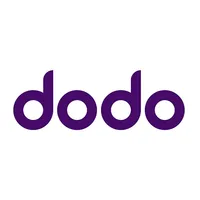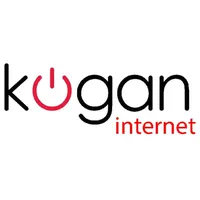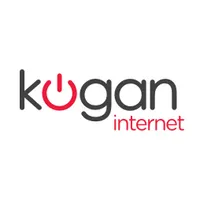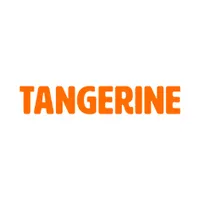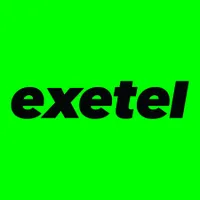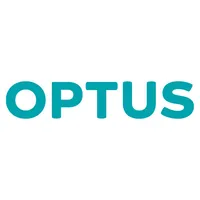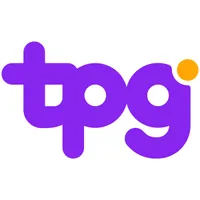Best internet deals in Australia February 2026
I've tracked down the best NBN and broadband deals and discounts currently available, along with alternatives such as 5G internet too

Sign up for breaking news, reviews, opinion, top tech deals, and more.
You are now subscribed
Your newsletter sign-up was successful
February 17, 2026 There hasn't been much of a change in NBN plan pricing lately, but the big news is that Kogan Internet has dropped the monthly price of its NBN 100 and NBN 500 plans by AU$3, resulting in it now laying claim to the cheapest NBN 500 plan over the first 12 months of service. February 11, 2026 While many of the deals I previously highlighted earlier in February are still live – including 12-month discounts on Dodo, Kogan Internet and Optus plans – Superloop has now entered the fray with a 'Speed Sale'. Superloop is one of my favourite telcos, as it regularly offers a great, reliable service at affordable prices. Now thanks to this surprise sale, some of its plan become even easier to recommend. Its NBN 1000 plan is a particular highlight, now starting at just AU$79p/m.
If you're looking for the best NBN deals to help you save on your home internet service then you've come to the right place. I make it my mission to constantly track down the very latest discounts and savings across all of the NBN speed tiers, and the good news is there really are some great prices if you know where to look.
Of course, I'm well aware that not every household in Australia can connect to the fixed-line NBN network, and if this is you, your best option could be a 5G home internet plan or one of the other NBN alternatives such as a private fibre network.
Now that the NBN speed upgrades are live, I'm confident in saying the best NBN 500 plans ultimately provide the perfect combination of speed and price. If you do connect to the fixed-line NBN and have the connection to support it, a 500Mbps plan is the only one worth considering.
If you just need basic internet at home, however, or you want the fastest possible speeds, read on to discover the latest internet and broadband deals.
Best NBN deals
If you're one of the nearly 9 million customers who connect to the internet via the fixed-line NBN network, then below you can find the best NBN deals this month. I've taken into account all the most popular speed tiers (sorry NBN 12, you're outta here). While in most cases the NBN deals we've chosen are the outright cheapest available, a few might cost a little bit more, but we believe they offer greater overall value.
Read on to find out the best NBN deals in Australia this month.
NBN 25 deals
Flip Unlimited Premium | 25Mbps | AU$44p/m (first 6 months, then AU$59.90p/m)
For a fuss-free, well-priced NBN plan that provides basic internet access, I can't recommend Flip highly enough. The telco has been unrivalled at this speed for as long as I can remember, and while the introductory discount has now decreased from 8 months to 6, it's still the cheapest of the providers I monitor.
• AU$44 minimum cost
• AU$623.40 first year cost
• AU$718.80 ongoing yearly cost
Dodo | 25Mbps | AU$51.99p/m (first 12 months, then AU$71.99p/m)
Thanks to a limited time offer available until February 24, Dodo is the among the cheapest providers, although only in the first year. You get a full 12-month discount, saving you AU$240, representing incredible value. For each ongoing year, however, Dodo's cost do verge on the more expensive, at which point I would recommend switching to the Flip plan mentioned further up.
• AU$51.99 minimum cost
• AU$623.88 first year cost
• AU$863.88 ongoing yearly cost
- View more of the best NBN 25 plans
NBN 50 deals
Dodo | 50mbps | AU$65.99p/m (first 12 months, then AU$85.99p/m)
Dodo's 12-month discount makes its NBN 50 plan the cheapest over the first year. It does become a good deal more expensive than some other providers from year two, but overall this is a highly competitive plan that shouldn't be ignored.
• AU$65.99 minimum cost
• AU$791.88 first year cost
• AU$1,031.80 ongoing yearly cost
Superloop Extral Value | 50Mbps | AU$55p/m (first 6 months, then AU$85p/m)
Thanks to a big discount as part of its Speed Sale, Superloop's NBN 50 plan becomes the second-cheapest behind Dodo. You'll pay just AU$55 a month for the first 6 months, which is by far the cheapest intro cost of any provider. The ongoing cost comes in slightly under the current average too, making this a fine choice for basic internet needs.
• AU$55 minimum cost
• AU$840 first year cost
• AU$1,020 ongoing yearly cost
Kogan Internet Silver | 50Mbps | AU$70.90p/m (first 12 months, then AU$80.90p/m)
Kogan Internet is also offering 12-month discounts across its entire NBN lineup right now, making it another great-value provider. The 50Mbps plan here is slightly more expensive than Dodo in the first year, but from year two, it's a lot cheaper. This deal is set to expire on March 1, 2026.
• AU$70.90 minimum cost
• AU$850.80 first year cost
• AU$970.80 ongoing yearly cost
- View more of the best NBN 50 plans
NBN 100 deals
Kogan Internet Gold | 100Mbps | AU$71.90p/m (first 12 months, then AU$85.90p/m)
Thanks to a slight decrease in the monthly cost over the first 12 months, Kogan Internet's NBN 100 plan is now the cheapest of all the providers I monitor. As mentioned earlier, this is a very recent change, and it now edges out Dodo by less than AI$10. From year two, it remains one of the cheapest providers, representing sensational value.
• AU$71.90 minimum cost
• AU$862.80 first year cost
• AU$1,030.80 ongoing yearly cost
Dodo nbn 100 | 100Mbps | AU$72.99p/m (first 12 months, then AU$92.99p/m)
As with its NBN 50 plan, Dodo's NBN 100 offering also gets the 12-month discount treatment, although it's no longer the cheapest for this tier due to Kogan Internet adjusting its pricing. Still, second-cheapest in the first year ain't bad, making Dodo another great-value option to consider.
• AU$72.99 minimum cost
• AU$875.88 first year cost
• AU$1,115.88 ongoing yearly cost
Tangerine Speedy NBN | 100Mbps | AU$63.90p/m (first 6 months, then AU$88.90p/m)
Despite not offering a full year discount anymore, Tangerine's NBN 100 plan is still the third-cheapest, which only solidifies it as a great-value provider.
• AU$63.90 minimum cost
• AU$916.80 first year cost
• AU$1,066.80 ongoing yearly cost
- View more of the best NBN 100 plans
NBN 500 deals
Exetel's NBN 500 plan is one of the standout options on the NBN 500 speed tier. It promises maximum plan speeds and comes with some extra perks thrown in too. These include being able to boost the speed further for a small fee, or dropping it to 12Mbps when you're away from home to save some money.
• AU$80 minimum cost
• AU$960 yearly cost
Kogan Internet Gold Plus | 500Mbps | AU$71.90p/m (first 12 months, then AU$85.90p/m)
As is the case with its 100Mbps plan, Kogan Internet's NBN 500 plan is also the cheapest over the first 12 months of service. Both the introductory cost and ongoing cost are both well below the current monthly average (just under AU$94p/m) representing stellar value.
• AU$71.90 minimum cost
• AU$862.80 first year cost
• AU$1,030.80 ongoing yearly cost
Dodo | 500Mbps | AU$72.99p/m (first 12 months, then AU$92.99p/m)
As with its NBN 100 plan, Dodo's NBN 500 offering is no longer the cheapest, as it too has been dethroned by Kogan Internet. It's still very affordable though, and you can save on your monthly bills if you choose to bundle a SIM plan or energy services.
• AU$72.99 minimum cost
• AU$875.88 first year cost
• AU$1,115.88 ongoing yearly cost
- View more of the best NBN 500 plans
NBN 750 deals
Flip | 640Mbps | AU$78p/m (first 4 months, then AU$89.90p/m)
Not only is a great option for basic internet, but Flip also has a cracking NBN 750 deal that deserves attention. It might only offer a 4-month discount for new customers, but combined with a low introductory rate, results in it being the second-cheapest in the first year behind Dodo. Plus, it has the cheapest ongoing rate too. It doesn't advertise maximum plan speeds, but 640Mbps is still plenty fast enough.
• AU$78 minimum cost
• AU$1,031.20 first year cost
• AU$1,078.80 ongoing yearly cost
Dodo nbn Home Superfast | 700Mbps | AU$79.99p/m (first 12 months, then AU$99.99p/m)
Dodo has increased the price of its NBN 750 plan by AU$5, but it's also now introduced a 12-month discount that counteracts the increase and makes its plan the cheapest in the process. My thoughts on NBN 750 plans are mixed, but if you think it's the speed for you, this is a great price to get it.
• AU$79.99 minimum cost
• AU$959.88 first year cost
• AU$1,199.88 ongoing yearly cost
NBN 1000 deals
Buddy Telco Zoomy | 875Mbps | AU$99p/m
Buddy Telco's NBN 1000 plan has always been one of my favourites for its fuss-free billing and its typical evening speed claims. And while its free month offer has now ended, it remains one of the cheapest providers.
• AU$99 minimum cost
• AU$1,188 yearly cost
Superloop Lightspeed | 860Mbps | AU$79p/m (first 6 months, then AU$109p/m
Superloop has long been another favourite of mine and its NBN 1000 plan is among the best around, especially now the introductory cost has dropped to just AU$79p/m for the first 6 months – exceptional value. Plus, official ACCC speed reporting data has found it to deliver in excess of 900Mbps download speeds to customers.
• AU$79 minimum cost
• AU$1,128 first year cost
• AU$1,308 ongoing yearly cost
- View more of the best NBN 1000 plans
Home wireless internet deals
Optus Superfast 5G | Uncapped speeds / 210Mbps TES | AU$79p/m(first 12 months, then AU$99p/m)
Optus' 5G home broadband plan is an attractive option for those who want mega-quick download speeds. The telco regularly wins in reports looking at 5G download speed, and if you live in an area with good coverage, you can realistically achieve in excess of 700Mbps and all the way up to gigabit-like speeds.
While this plan does offer uncapped speeds, the typical evening speed is rated at 210Mbps. Optus has recently introduced a 12-month discount too, saving you AU$240 in the first year. And for more great value, you get a standard Netflix subscription included in this plan (valued at AU$20.99p/m).
• AU$547 minimum cost (incl. modem)
• AU$948 yearly cost
• AU$1,188 yearly cost
TPG | 5G home internet (100Mbps capped) | AU$44.99p/m (first 6 months, then AU$64.99p/m)
For cheaper 5G home internet, you might want to consider TPG’s plan which costs AU$44.99 a month for the first 6 months. Download speeds are capped at 100Mbps, but the total cost of this plan is around AU$300 cheaper over 12 months than TPG's own NBN 100/500 plans.
• AU$44.99 minimum cost
• AU$659.88 first year cost
• AU$779.88 ongoing yearly cost
Internet deals FAQ
Which provider has the best internet deals?
There are a lot of providers offering a wide range of internet deals, making it difficult to know which plan is right for you. Some are super cheap, while others offer fast speeds at a higher cost. Each ISP has a selling point that makes it worth your time. In general, it's the 'smaller' providers that are going to have the best deals, and these include Spintel, Flip, Dodo and Superloop.
Who has the cheapest internet deal in Australia?
Flip has the cheapest internet deal in Australia, with its NBN plans starting at just AU$44 a month for the first 6 months. That introductory price is available on Flip’s NBN 25 plan, so as you might expect, its cheapest plan is also its slowest. It promises a typical evening speed of 25Mbps, so it’s really only intended for very light internet users. If you want faster speeds, Flip offers some of the lowest prices across the speed tiers.
What NBN speed do I need?
NBN speeds are represented as megabits per second (Mbps), and generally speaking, the higher Mbps, the faster the speed. Do keep in mind though that the advertised typical evening speed is the 'average' and doesn’t necessarily reflect the actual download speed you’ll receive during peak periods. For the most part, that varies depending on your connection type.
25-50Mbps. Every major internet provider offers 25-50Mbps broadband, and you’ll commonly see it referred to as an NBN 25 plan and an NBN 50 plan. This is the sweet spot between fast speeds and good value, and should comfortably suit a household with three to five users who are streaming, gaming or working from home all at once.
50-100Mbps. If you want to stream in 4K, or have five or more people using your internet connection at the same time, then it may be worth shelling out for the extra speed. It will cost you more, but you’ll experience much less lag, and providers may sweeten the deal with added extras and rewards.
250Mbps. Now we’re getting really fast. An NBN 250 plan is best-suited to a busy household that wants lightning-quick broadband. You’ll only really get value out of this if you want to download large files, have multiple devices online at the same time, or if multiple users want to stream in 4K or 8K simultaneously.
1,000Mbps. If money is no object, then 1Gbps download speed is the best broadband you can get. It’s a relatively new speed tier in Australia, and as such, the small number of telcos who provide it report a typical evening speed of 825Mbps on average. However, in real world tests it’s often much higher; we’ve seen speed test results of over 900Mbps. With this kind of speed, you can expect to do everything highlighted above without incident, and have exceptionally fast downloads.
What is 'average' speed for internet?
According to the Speedtest Global Index, the median download speed of internet in Australia is 109.19Mbps, which places Australia at number 55 among all the countries ranked, an improvement from a previous position of 82. Interestingly, the nation's average mobile download speed is much higher at 124.99Mbps.
You won’t personally receive that kind of speed unless you sign up to an NBN 100 plan or higher. But also note that your connection type and location can affect the final speed you receive, so it’s best to double check with any prospective providers to see exactly what their minimum speed provisions and conditions are. We hope this average speed figure increases now we have access to higher-speed internet plans.
Every internet service provider (ISP) in Australia is required to state each of its NBN plans' typical evening speed, so look out for this number when signing up to a new plan.
Is the NBN available in my area?
The simplest way to see if the NBN is available in your area is check your address directly on NBN Co’s website. This will tell you what type of connection is available at your address, so you know what to look for when comparing NBN plans.
Now that the NBN rollout has officially been declared complete, the vast majority of Australians should now have access to the National Broadband Network in some form. You can also take a look at the NBN rollout map to see what is available and where.
Internet contracts and pricing
What contract length should I go for?
Most internet providers offer month-to-month plans with no lock-in contracts. Some providers do give you the option of signing up to a six or 12-month contract, though it is certainly less common than rolling month-to-month terms. Given the flexibility that month-to-month contracts provide, we wouldn’t recommend signing up to a lock-in contract.
No lock-in contracts are much more popular though, and most of them do give you the option of using your own modem if you have one. While some telcos will require you to pay set-up fees, the benefit of a no lock-in contract is that the minimum you could pay might be as little as a one-month term.
Will I have to pay anything upfront for NBN?
Possibly. Known interchangeably as 'activation', 'connection', 'setup' or 'upfront' fees, most of the major internet providers ask for some payment when you kick off your contract, even if it’s just to cover the cost of delivering your new modem.
But plenty of providers have now scrapped their set-up fees completely (Telstra, for example, will waive its connection fee if you sign-up online), while others run promotions where they temporarily scrap their upfront cost.
There may be other added extras, too. If you want an internet and entertainment package, you might be charged for the set-top box – that could be worth it if you don’t have a device to pause and record live TV.
Do I have to pay more to have a phone line?
If you use a home landline to make and receive calls, many broadband providers give you the option of including a phone line, with some even including one at no extra cost.
Telstra’s NBN plans all include a home phone landline at no extra cost, and you’ll also get unlimited calls to Australian mobiles and standard lines included for free.
Optus offers you an optional phone line with all its NBN plans, with calls billed on a PAYG basis. Alternatively, you can choose to add a phone line with unlimited calls to standard numbers and mobiles in Australia for an extra AU$10 a month.
TPG is much the same, offering PAYG calls. For an additional AU$10 a month, you can add unlimited calls to standard numbers and mobiles in Australia.
Are Wi-Fi and broadband the same thing?
Yes and no. For many of the broadband deals we've listed above, you will be getting a Wi-Fi modem-router alongside a broadband connection.
Wi-Fi is what enables you to connect your laptop and phone to the internet through wireless connections within and around your home. This is achieved thanks to the modem-router that comes with your broadband package.
Broadband is the external connection that allows your modem-router to access the internet, which can be via a physical cable (such as a fibre-optics based NBN connection) or via a fixed-wireless connection, such as satellite or even a 4G- or 5G-based connection.
Can I cancel my internet plan early?
Cancelling your internet plan early is possible, and is especially easy if you’ve signed up to a no lock-in contract.
Whether or not you’ll have to pay any exit fees depends on the specifics of your plan. If you’re on a no lock-in contract and are using your own modem, or you paid for it upfront, chances are you can jump ship without facing a fee.
If you’re on a rolling month-to-month contract but haven’t yet paid off your modem, you’ll often be required to pay out what is remaining for the device.
Cancelling an internet plan that you’ve signed a six or 12-month contract for can be harder, and you’ll almost certainly have to pay an exit fee. You may need to pay out the monthly cost for each month you have remaining, a percentage of it, or a flat fee.
While you can cancel early, if you are able to ride it out, it’s likely the better option and will save you a decent amount of money.
My contract has ended, should I change plans?
Yes, always yes! When internet contracts come to an end, your plan will end up rolling on, and often the costs have sky-rocketed up. This could leave you paying significantly more for the same plan.
When your internet package is coming to an end, take a look at what is available and see if you could get better speeds, prices or freebies somewhere else.
4G and 5G home internet: what are they?
In recent years, alternatives have been proposed to the NBN, offering more flexible solutions, cheaper plans and other options.
Of the alternatives, 5G home internet is likely to be the better option, especially since its coverage has improved. It works by placing a SIM card inside a modem, amplifying its connection through a house.
It offers a few key benefits over the NBN. Primarily, it doesn’t require a set-up process, it can be taken anywhere there’s a power socket and it offers flexibility for renters or travellers.
It’s not as powerful as regular internet, but if you're unhappy with the NBN connection where you live, are in need of a temporary solution or any other factor that applies, this could be the perfect way to go.
Can I get freebies with my internet plan?
The most common freebie you’ll get with your internet plan is a free modem, though this usually requires you to stay connected to the plan for around 24 months.
Telstra and Optus are the most likely to include other added perks, such as a free streaming subscription to your plan.
- Best NBN provider: which is Australia’s top internet provider?
Sign up for breaking news, reviews, opinion, top tech deals, and more.

Max is a senior staff writer for TechRadar who covers home entertainment and audio first, NBN second and virtually anything else that falls under the consumer electronics umbrella third. He's also a bit of an ecommerce fiend, particularly when it comes to finding the latest coupon codes for a variety of publications. He has written for TechRadar's sister publication What Hi-Fi? as well as Pocket-lint, and he's also the editor of Australian Hi-Fi and Audio Esoterica magazines. Max also dabbled in the men's lifestyle publication space, but is now firmly rooted in his first passion of technology.
You must confirm your public display name before commenting
Please logout and then login again, you will then be prompted to enter your display name.

